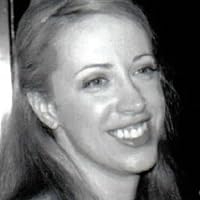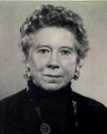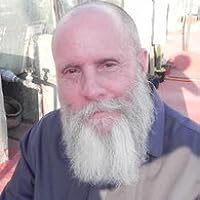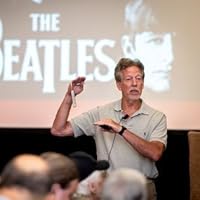Quakers Quotes
Quotes tagged as "quakers"
Showing 1-21 of 21

“Like a wild animal, the soul is tough, resilient, resourceful, savvy, and self-sufficient: it knows how to survive in hard places. I learned about these qualities during my bouts with depression. In that deadly darkness, the faculties I had always depended on collapsed. My intellect was useless; my emotions were dead; my will was impotent; my ego was shattered. But from time to time, deep in the thickets of my inner wilderness, I could sense the presence of something that knew how to stay alive even when the rest of me wanted to die. That something was my tough and tenacious soul.”
― A Hidden Wholeness: The Journey Toward an Undivided Life : Welcoming the soul and weaving community in a wounded world
― A Hidden Wholeness: The Journey Toward an Undivided Life : Welcoming the soul and weaving community in a wounded world

“Sometimes painfully lost people can teach us lessons that we didn't think we needed to know, or be reminded of---the more history changes, the more it stays the same.”
―
―

“She ought to call him Benjamin, but it was too intimate, too soft.
"My lord?" she ventured, only half serious.
"Good, God, no."
She bit back a smile. "Husband?" she took a sip of wine.
He grunted. "Are we to become Quakers?”
―
"My lord?" she ventured, only half serious.
"Good, God, no."
She bit back a smile. "Husband?" she took a sip of wine.
He grunted. "Are we to become Quakers?”
―

“When we really want to hear, and be heard by, someone we love, we do not go rushing into noisy crowds. Silence is a form of intimacy. That’s how we experience it with our friends and lovers. As relationships grow deeper and more intimate, we spend more and more quiet time alone with our lover. We talk in low tones about the things that matter. We do not shout them to each other. We may shout about them to others, but quietness is the hallmark of love.”
― Holy Silence: The Gift Of Quaker Spirituality
― Holy Silence: The Gift Of Quaker Spirituality

“Once a state has completely withered away, it is an extremely difficult task to re-create it, as Blackwell quickly discovered. If Blackwell had been under any illusions that the Quakers were a meek and passive people, he was in for a rude surprise. He was to find very quickly that devotion to peace, to liberty, and to individualism in no sense implies passive resignation to tyranny. Quite the contrary.”
― Conceived in Liberty Volumes I-IV
― Conceived in Liberty Volumes I-IV
“I was only beginning to enter into the infinite subtlety of Gregorian chant. It was - and remains - the only public prayer I have ever been able to engage in without feeling like a phony and a jackass. But then, one day in 1965 or so, it was simply abolished. With a stroke of his pen, Pope John XXIII - who had such good ideas about other things - declared that liturgy would henceforth be in the vernacular language of the people. That was, effectively, the end of Latin chant.
Then all those monks and nuns who had devoted hours and hours a day began to sicken and fall into depressions, but nobody noticed for a long time. Maybe, as I can well believe, the music toned up their systems in some mysterious way. Or perhaps chant really was a language that God understood. Faced with numerous liturgical scholas shrieking away in the new vernacular hymns, Divinity may have covered its ears and withdrawn, leaving the monks to pine. We parish musicians, illiterate in anything written after the 13th century, stumbled around trying to score liturgies for guitar and bongo drums, trying to make sense of texts like "Eat his body! Drink his blood!"
It wasn't because the music got so bad that I quit going to Mass, but it certainly was the beginning of my doubts about papal infallibility.”
― The Barn at the End of the World: The Apprenticeship of a Quaker, Buddhist Shepherd
Then all those monks and nuns who had devoted hours and hours a day began to sicken and fall into depressions, but nobody noticed for a long time. Maybe, as I can well believe, the music toned up their systems in some mysterious way. Or perhaps chant really was a language that God understood. Faced with numerous liturgical scholas shrieking away in the new vernacular hymns, Divinity may have covered its ears and withdrawn, leaving the monks to pine. We parish musicians, illiterate in anything written after the 13th century, stumbled around trying to score liturgies for guitar and bongo drums, trying to make sense of texts like "Eat his body! Drink his blood!"
It wasn't because the music got so bad that I quit going to Mass, but it certainly was the beginning of my doubts about papal infallibility.”
― The Barn at the End of the World: The Apprenticeship of a Quaker, Buddhist Shepherd

“To condemn slavery was one thing—that I could do in my own individual heart—but female ministers!”
― The Invention of Wings
― The Invention of Wings
“I feel in good spirits, though surrounded by an Army, the house full of officers, the yard alive with soldiers, - very peaceable sort of men, tho'. They eat like other folks, talk like them, and behave themselves with elegance; so I will not be afraid of them, that I won't.”
― Sally Wister's Journal: A True Narrative Being A Quaker Maiden's Account Of Her Experiences With Officers Of The Continental Army, 1777-1778
― Sally Wister's Journal: A True Narrative Being A Quaker Maiden's Account Of Her Experiences With Officers Of The Continental Army, 1777-1778

“New dispensations may await us; the Kingdom may come in ways we never dreamed of; the beyond may be more momentous than we have ever expected, but always and everywhere 'the within' determines 'the beyond,' and character is destiny.”
― The Inner Life
― The Inner Life

“It is not strange that a synoptic writer reports the saying: 'No man knoweth the Father but the Son.' The passage as it stands reported in Matthew may be colored by later theology, but there is a nucleus of absolute truth hidden in the saying. There is no other way to know God but this way of inner love-experience.”
― The Inner Life
― The Inner Life

“Having grown up knowing the formerly-mentioned historical figures on the bus are part of my family lineage, I was interested to learn that at least one, famed American psychic and suffragette, Amanda Theodosia Jones (of Puritan, Quaker and Huguenot heritage), was a self-proclaimed spiritualist. While aware of her inventions and business endeavors, I’d never been informed of her interest in metaphysics.
Possessing a rather significant collection of her letters, poetry and other documents, it is perhaps my intimate relationship with this extraordinary individual inspiring my lifelong engagement with the psychic world. Indeed, in a recent dream, the spirit of Amanda T. Jones contacted me for reasons that will later be delineated. It is my ongoing contact with her and other spirit entities (including the Bodhisattva of Compassion, Kuan Yin), in fact, inspiring me to pen this manuscript.
Having dedicated her 1910 autobiography, A Psychic Autobiography to William James, (known today as the Father of Modern Psychology and who’d encouraged her to author it), Ms. Jones therein described her psychic abilities and subsequent expansion into spiritualism. Her developing interest in mysticism led her to be among those at the forefront of the spiritualist movement that, for a period of time before and after the Civil War, captured the imagination of millions. In her poetry book (Poems, 1854–1906), she detailed a family incident leading to what could be considered as a miracle.”
― The Healing Power of Dreams: The Science of Dream Analysis and Journaling for Your Best Life!
Possessing a rather significant collection of her letters, poetry and other documents, it is perhaps my intimate relationship with this extraordinary individual inspiring my lifelong engagement with the psychic world. Indeed, in a recent dream, the spirit of Amanda T. Jones contacted me for reasons that will later be delineated. It is my ongoing contact with her and other spirit entities (including the Bodhisattva of Compassion, Kuan Yin), in fact, inspiring me to pen this manuscript.
Having dedicated her 1910 autobiography, A Psychic Autobiography to William James, (known today as the Father of Modern Psychology and who’d encouraged her to author it), Ms. Jones therein described her psychic abilities and subsequent expansion into spiritualism. Her developing interest in mysticism led her to be among those at the forefront of the spiritualist movement that, for a period of time before and after the Civil War, captured the imagination of millions. In her poetry book (Poems, 1854–1906), she detailed a family incident leading to what could be considered as a miracle.”
― The Healing Power of Dreams: The Science of Dream Analysis and Journaling for Your Best Life!

“Readers will be swept up by the drama and fast pace of this powerful debut novel.” Reading Today Online, International Reading Association”
― Running Out of Night
― Running Out of Night
“For the forest, the shared purpose is life itself, existence; everything extraneous stripped away by its necessity. Perhaps the goal of the spiritual life is to strip away everything frivolous as well, to pare it all back to the necessity of connection with the other. If we worship in the sincere presence of that power that takes away our forever-unmet need of things superfluous, we enter the real ecology of the meeting, where all is web.”
― The Ecology of Quaker Meeting
― The Ecology of Quaker Meeting

“Eliza, I'm eighty years old. All my life I've been trying one way or another to do people good. Whether that was right or not, I don't know, but it comes over me now that I'm excused from all that. I loved Homer, but I tried to do him good. .. the way I see it now, that was wrong, that was where I's led astray. From now on, Eliza, I don't figure there's a thing asked of me but to love my fellow men. . . .No, Eliza, as far as I can see, there's not another thing asked of me, from this day forward.”
― The Friendly Persuasion
― The Friendly Persuasion

“The rigidity of religious practitioners is exactly like the rigidity of the muscles that Reichian therapists encounter in the bodies of those people who have had their emotions repressed by their parents, society, trauma, and other factors. Why do you think that the Christian Revivalist movements in which people shake (The Shakers), quake (The Quakers), and generally shout and roll around on the floor in all sorts of gyrating movements (Christian Evangelical Revivalist Meetings), are so popular?”
― 666: Connection with Crowley
― 666: Connection with Crowley

“From what I understand, signora, the Quakers, who are also known as Friends, are a small group of devout people who worship in silence, believing no one person can interpret the word of the Lord but all have the Light of God in them. When it shines, whoever feels it may address others--- the Friends--- who gather for meetings. They believe that under the loving eyes of God the Father, all men and women are equal."
"Equal? Men and women?" Rosamund could scarce believe it.
"Men and women, the nobles and the poor, the gentry and the servants-- even those with dusky skins or cream. All the same."
"And they worship in silence? How?"
"By communing with God in their own way.”
― The Chocolate Maker's Wife
"Equal? Men and women?" Rosamund could scarce believe it.
"Men and women, the nobles and the poor, the gentry and the servants-- even those with dusky skins or cream. All the same."
"And they worship in silence? How?"
"By communing with God in their own way.”
― The Chocolate Maker's Wife

“And if McCloy couldn’t get government money to fund these operations, there were other options available to him. Toward the end of his tenure as high commissioner in Germany in the early 50s, McCloy wrote to the Ford Foundation mentioning Der Monat and asking them to “help to carry on certain operations which the future U.S. Embassy may find it difficult to continue, but which are of great significance to United States objectives in Germany.”
The Ford Foundation, we are told, “obliged.” Other organizations were happy to oblige as well. One of the things one notices in the reports on the housing riots in Chicago is that the reports which were filed by spies working for the Office of War Information and the Office of Facts and Figures during the war years started getting filed by spies working for the American Civil Liberties Union and the American Friends Service Committee once the war was over. This was precisely the devolution of government policy by “private” agency which McCloy was urging at the Ford Foundation, which would in turn become a major benefactor of the American Friends Service Committee, which in turn became a major player in disrupting ethnic neighborhoods in cities like Philadelphia, Chicago, Oakland, California and elsewhere by promoting racial “integration.”
― The Slaughter of Cities: Urban Renewal as Ethnic Cleansing
The Ford Foundation, we are told, “obliged.” Other organizations were happy to oblige as well. One of the things one notices in the reports on the housing riots in Chicago is that the reports which were filed by spies working for the Office of War Information and the Office of Facts and Figures during the war years started getting filed by spies working for the American Civil Liberties Union and the American Friends Service Committee once the war was over. This was precisely the devolution of government policy by “private” agency which McCloy was urging at the Ford Foundation, which would in turn become a major benefactor of the American Friends Service Committee, which in turn became a major player in disrupting ethnic neighborhoods in cities like Philadelphia, Chicago, Oakland, California and elsewhere by promoting racial “integration.”
― The Slaughter of Cities: Urban Renewal as Ethnic Cleansing

“The ethnics caught up in the racial struggies oi the post-war period in Chicago were in the unenviable position of people who had the rules changed on them in mid-game. The Poles who settled Calumet Park as Sobieski Park had created their neighborhood enclaves under certain assumptions, all of which got changed when the environmentalist East Coast WASP internationalist establishment took power in 1941. Not only hadn’t they been informed of the rule change, they were doubly vulnerable because compared to their opponents who were further along on the scale of assimilation, they didn’t have a clear sense of themselves as Poles or Catholics or Americans or “white” people.
They also feared the sexual mores of the invading black hordes but could not articulate this fear in polite language. As a result, each attempt to explain their position drove them further beyond the pale of acceptable public discourse. More often than not, the only people who were articulating their position were the American Civil Liberties Union and American Friends Service Committee agents sent into their neighborhoods to spy on them. One AFSC spy reported that fear of intermarriage “caused the intensity of feelings” in Trumbull Park.*
Black attempts to use the community swimming pool were similarly seen in a sexual light. The ACLU agent who was paid to infiltrate bars in South Deering reported that the real motivation behind Brown v. Board of Education, the Supreme Court’s landmark 1954 decision mandating desegregation of Southern schools, was to move “niggers into every neighborhood” to intermarry and thereby send the “whole white race . . . downhill.”
Deprived of their ethnic designation as Catholic by a Church that was either hostile (as in the case of Catholic intellectuals) or indifferent (as in the case of the bishops and their chancery officials), Chicago ethnics, attempting to be good Americans, chose to become “white” instead, a transformation that not only guaranteed that they would lose their battle in the court of public opinion, but one which also guaranteed that they would go out of existence as well, through the very assimilation process being proposed by their enemies.”
― The Slaughter of Cities: Urban Renewal as Ethnic Cleansing
They also feared the sexual mores of the invading black hordes but could not articulate this fear in polite language. As a result, each attempt to explain their position drove them further beyond the pale of acceptable public discourse. More often than not, the only people who were articulating their position were the American Civil Liberties Union and American Friends Service Committee agents sent into their neighborhoods to spy on them. One AFSC spy reported that fear of intermarriage “caused the intensity of feelings” in Trumbull Park.*
Black attempts to use the community swimming pool were similarly seen in a sexual light. The ACLU agent who was paid to infiltrate bars in South Deering reported that the real motivation behind Brown v. Board of Education, the Supreme Court’s landmark 1954 decision mandating desegregation of Southern schools, was to move “niggers into every neighborhood” to intermarry and thereby send the “whole white race . . . downhill.”
Deprived of their ethnic designation as Catholic by a Church that was either hostile (as in the case of Catholic intellectuals) or indifferent (as in the case of the bishops and their chancery officials), Chicago ethnics, attempting to be good Americans, chose to become “white” instead, a transformation that not only guaranteed that they would lose their battle in the court of public opinion, but one which also guaranteed that they would go out of existence as well, through the very assimilation process being proposed by their enemies.”
― The Slaughter of Cities: Urban Renewal as Ethnic Cleansing

“In 1970 the Quakers released a slim book entitled “Who Shall Live? Man’s Control over Birth and Death: A Report Prepared for the American Friends Service Committee” which was the result of a decision which the Family Planning Committee of the AFSC reached in December 1966 “to explore the issues involved in abortion.” That meeting in turn flowed from the November 1966 meeting that the AFSC had had with Planned Parenthood, and that meeting resulted from the setback the Quaker and Episcopalian forces for sexual liberation and eugenics in Philadelphia had suffered at the hands of Martin Mullen, when the governor capitulated to his demands and backed away from state-promoted birth control in August of the same year. As a result of their meeting with Planned Parenthood, the Quakers decided to “make a study of the availability of family planning services for medically indigent families in the city and to form an estimate as to the extent of the unmet need for such services. “Who Shall Live” was the fruit of this labor.
“Who Shall Live?” is a graphic example of moral theology in the Quaker mode. It begins by announcing that “for 300 years members of the Society of Friends (Quakers) have been seekers after the truth” and concludes by admitting that they have been so far unsuccessful in their efforts. Where once people like Fox and Penn “thought of himself as created only a few thousand years ago,” the enlightened Quakers who wrote birth-control tracts in the 1960s “now know he is part of an evolutionary process that has been going on for billions of years. In that process he has arrived at a stage of knowledge and technology whereby he himself has the power, at least in part, to determine the direction
in which he will evolve in the future.”
Having decided that their religious forebears were wrong on just about everything because they didn’t understand science, the 1970 Quakers then give some sense of their own grasp of science as it applies to population issues. Looking at the world from outer space in 1968, the Quakers found it “incredible that 3.5 billion people should be living on that small spinning planet.” Taking their cue from Paul Ehrlich’s 1968 book “The Population Bomb” the Quakers concluded quite logically that if the planet cannot sustain 3.5 billion people in 1968, then it certainly couldn’t sustain 6 billion people in the year 2000. Unless drastic population-control measures are introduced immediately, dire consequences will follow. “Lamont C. Cole, who is a Professor of Ecology warns that we may one day find ourselves short of breathable air,” the Quakers announced breathlessly.”
― The Slaughter of Cities: Urban Renewal as Ethnic Cleansing
“Who Shall Live?” is a graphic example of moral theology in the Quaker mode. It begins by announcing that “for 300 years members of the Society of Friends (Quakers) have been seekers after the truth” and concludes by admitting that they have been so far unsuccessful in their efforts. Where once people like Fox and Penn “thought of himself as created only a few thousand years ago,” the enlightened Quakers who wrote birth-control tracts in the 1960s “now know he is part of an evolutionary process that has been going on for billions of years. In that process he has arrived at a stage of knowledge and technology whereby he himself has the power, at least in part, to determine the direction
in which he will evolve in the future.”
Having decided that their religious forebears were wrong on just about everything because they didn’t understand science, the 1970 Quakers then give some sense of their own grasp of science as it applies to population issues. Looking at the world from outer space in 1968, the Quakers found it “incredible that 3.5 billion people should be living on that small spinning planet.” Taking their cue from Paul Ehrlich’s 1968 book “The Population Bomb” the Quakers concluded quite logically that if the planet cannot sustain 3.5 billion people in 1968, then it certainly couldn’t sustain 6 billion people in the year 2000. Unless drastic population-control measures are introduced immediately, dire consequences will follow. “Lamont C. Cole, who is a Professor of Ecology warns that we may one day find ourselves short of breathable air,” the Quakers announced breathlessly.”
― The Slaughter of Cities: Urban Renewal as Ethnic Cleansing
All Quotes
|
My Quotes
|
Add A Quote
Browse By Tag
- Love Quotes 98.5k
- Life Quotes 76.5k
- Inspirational Quotes 73.5k
- Humor Quotes 44k
- Philosophy Quotes 30k
- Inspirational Quotes Quotes 27.5k
- God Quotes 26.5k
- Truth Quotes 24k
- Wisdom Quotes 24k
- Romance Quotes 23.5k
- Poetry Quotes 22.5k
- Death Quotes 20k
- Life Lessons Quotes 20k
- Happiness Quotes 19k
- Quotes Quotes 18k
- Faith Quotes 18k
- Hope Quotes 18k
- Inspiration Quotes 17k
- Spirituality Quotes 15k
- Religion Quotes 15k
- Motivational Quotes 15k
- Writing Quotes 15k
- Relationships Quotes 14.5k
- Life Quotes Quotes 14.5k
- Love Quotes Quotes 14.5k
- Success Quotes 13.5k
- Time Quotes 12.5k
- Motivation Quotes 12.5k
- Science Quotes 12k
- Motivational Quotes Quotes 11.5k



